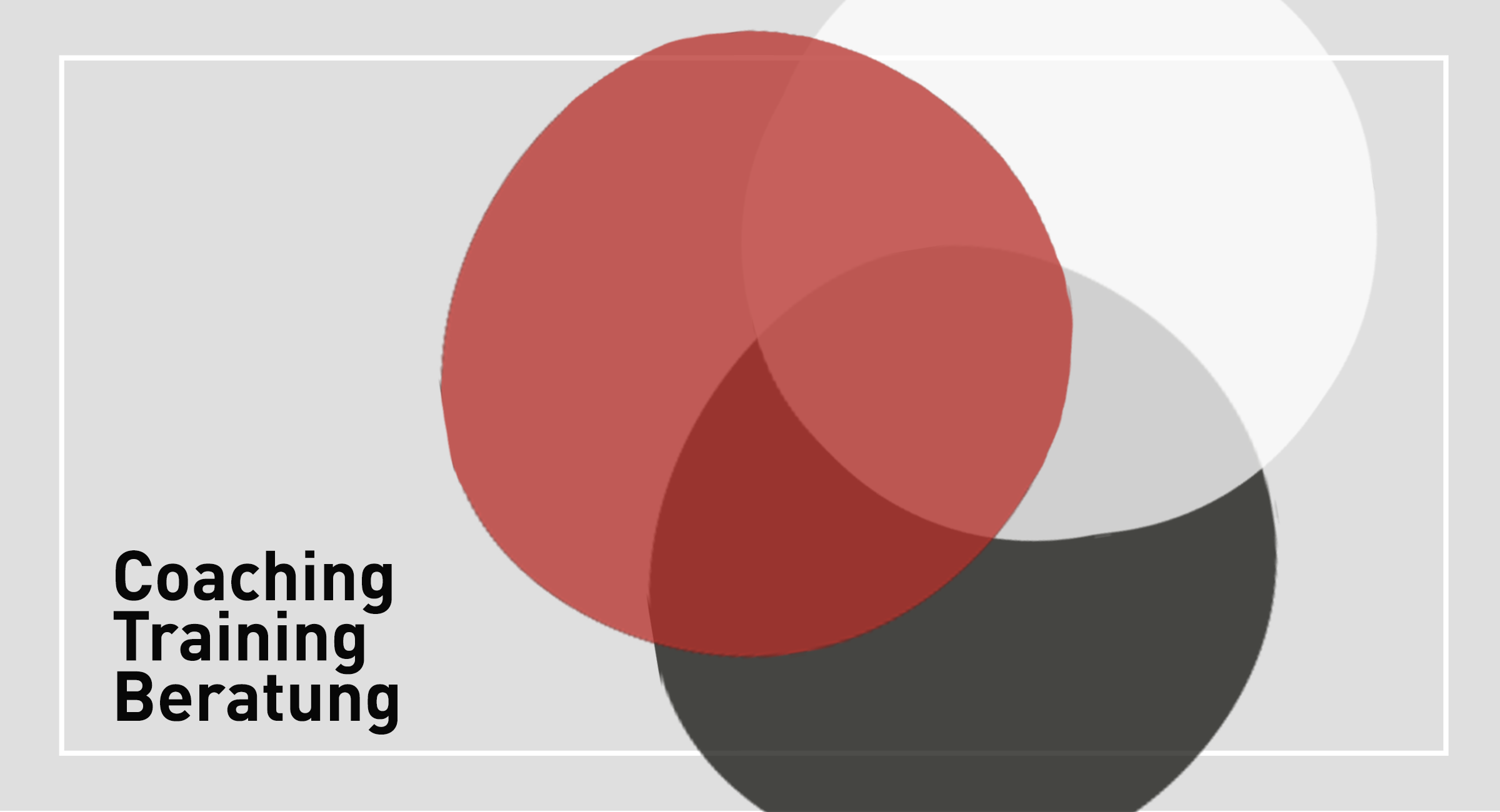
Differences between coaching, training and consulting
Coaching, training, consulting - three terms for three very similar and yet different areas. In today's magazine article, we explain the fundamental differences between the three disciplines.
Coaching
What is coaching?
Coaching is primarily about "helping people to help themselves". The aim of coaching is to accompany change and support decisions. Coaching is therefore process support. In coaching, the coach and the coachee have conversations that lead to the coachee discovering their own resources and strengths.
In order to discover these resources, the coach guides the conversation with the help of so-called tools (coach's tools). The coach thus guides the coachee to develop their own solutions. Coaching is primarily about discovering and strengthening one's own personality. The focus is always on the coachee's individual goal.
Coaching can also be described as a solution-oriented form of consulting. In contrast to traditional counseling, coaching does not provide tips and advice.
The best thing about coaching is the combination of immediate effects and long-term, sustainable success.
When is coaching suitable?
Coaching is best suited when we are not just looking for solutions, but want to tap into our potential in order to find lasting professional and personal satisfaction. Coaching is an approach that is individually tailored to the needs of the coachee.
We have the choice of following the lead of others or finding our own way. The coach will not explain or recommend anything to us. He will use questions to guide the coachee to more options in perception, thinking and action.
The coach creates the framework that favors the coachee's self-development and allows him to find his own systemically balanced solutions.
Business coaching and life coaching
In coaching, we differentiate between business coaching and life coaching - depending on the occasion and topics.
- Business coaching: The focus here is on professional issues.
- Life coaching: The focus is on personal and private issues - life coaching therefore differs from business coaching in terms of content.
A holistic approach that includes life and business coaching can be useful because the job is an important part of life and the different areas of life influence each other. Basically, however, you decide which topics you want to tackle.
Advice
What is professional advice?
In traditional consulting, the consultant is an expert in their field. A consultant gives the person seeking advice specific advice and expert tips. The consultant has usually built up their expertise through specialist knowledge, literature, studies and their own practical experience. The client draws on this expertise and receives answers and solutions tailored to their individual situation. The term consulting is also frequently used in the field of management consulting.
When is a consultation the best choice?
Consulting is suitable when we are entering unfamiliar territory, when we are faced with a difficult task, when we do not have the necessary expertise or when we are looking for a proven solution to a problem.
We have the choice: we can either go for trial and error - i.e. try and fail. Or we can look for a consultant who has a head start in terms of knowledge and experience in relation to our problem and can help us accordingly.
What do you do as a consultant?
A consultant is an expert who knows practical tips and application advice and can guide us unerringly to success. He can prepare us for risks and point out opportunities - at the same time, he clarifies the assignment with us and shows us options that are sustainable at best. Based on the consultation, we plan, decide and take responsibility for the implementation ourselves.
Training
What is training?
Training is about learning new methods. A trainer guides the training participants to learn skills in new areas. These can be, for example, methods for better time management or instructions on how to organize processes.
When is training the best choice?
Training is the best choice when we have a goal that we can only achieve if we increase our level of competence, motivation or performance. Training prepares us for a task and is aimed at people with similar goals.
We have a choice: either we train ourselves or we take part in a training course. As self-learners, however, we may find that we learn awkwardly, learn the wrong things or lose motivation and give up immediately at the first obstacle.
What is part of the training?
A good trainer picks you up at the point where you are. The trainer ensures that you learn what you need to in order to achieve your goal. They motivate you so that you can learn more easily and sustainably and enjoy practising. The training participants benefit not only from the trainer, but also from the input and feedback of others.
Coaching, training, consulting - clear boundaries?
In everyday life and also in practical consulting, the boundaries between the areas of coaching, consulting and training become blurred from time to time - and that's absolutely fine!
It is important that we know the differences and know which offer suits us. Sometimes the terms are not used clearly. For example, there are more and more "coaching sessions" that are similar in content to training or consulting.
In the end, it is not the name that matters, but our desired result and the content of the coaching/consulting/training.
Interested?
We offer suitable individual coaching (business coaching, training and consulting) as well as coaching and training for companies.